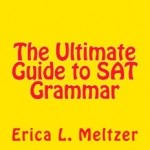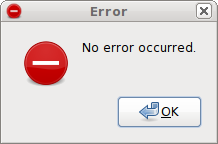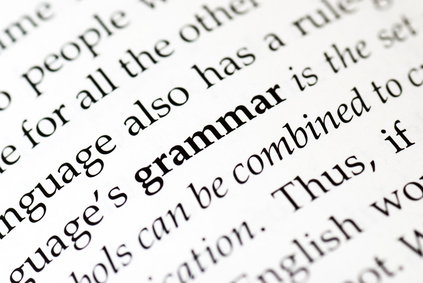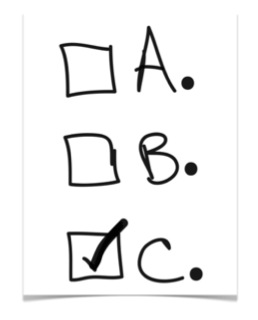The following article is an excerpt from my complete e-Book, SAT Grammar Crammer: Top 12 Rules of the SAT Writing. Order your copy today for the complete lesson!
Subject-Verb Agreement: One Rule to Bind Them All
Listen up, because if I was only allowed to teach just one SAT grammar rule to any student, this is the one I would pick.
Another name for this grammar topic is “Singular/Plural Errors.”
It has to do with matching pairs of words – a subject and a verb. Singular subject, singular verb. Plural subject, plural verb. It’s an easy basic writing topic that can be dressed up in all sorts of ways. Let’s look at a simple sentence:
“Sam walks to the beach.”
The “Subject” is the main character; in this case, “Sam.” The verb is “walks.” This sentence sounds fine, but what if the SAT altered it to:
“Sam walk to the beach.”
Sounds pretty terrible, doesn’t it? Your ears know that a singular/plural error has happened. They just know!
Get Exclusive SAT Prep Tips!
I want to send you more tips to help your SAT score, but I need your email address to stay in touch. Enter your email below so I can send you my reports on the SAT and other subscriber-only bonuses.
In grammar-speak, here’s what went wrong. “Sam” is singular – one person. However, “walk” is plural, so they don’t match up. “Walks” is singular, which is why the first sentence sounded fine.
If you can’t tell the difference between singular and plural verbs, use “He ‘blanks,’ they ‘blank.’”:
If you’re in the SAT Writing section and can’t tell if a verb is singular or plural, test it in your mind with both “he/she” and “they.” You’d say “he walks, they walk.” Your inner ear will know which way is correct.
Is “swims” a singular or plural word? Try the test: “he swims, they swim.” Since “swims” sounds right when matched with “he,” we know that “swims” is singular.
Is “jump” a singular or plural verb? “He jumps, they jump” – it’s plural, because it sounds right when matched with “they.”
I use this test extensively throughout the grammar portion of the SAT Writing test to help me figure out if a word is singular or plural.
In my experience, this strategy is not something I see taught a lot by other test prep methods.
Telling the difference between singular and plural nouns on the SAT:
You shouldn’t have much trouble determining if most nouns are singular or plural. However, there are some “tricky” nouns that the SAT uses again and again to trap unwary students; here are some examples:
Some tricky singular words that sound plural:
- Organization
- College
- Town
- Country
- College
- Business
- Company
- Team
- Pack (of dogs)
- School (of fish)
All of these words are SINGULAR – just one college, just one school of fish, etc. – even though we know that they are made up of many people or animals. The SAT Writing will try to trick you like this:
“The entire team are packing their bags and going back home.”
In the above example, the question authors are trying to exploit any confusion you may have about whether team is singular or plural. This also overlaps with the related topic, Pronoun Number, so read up on that grammar rules as well.
Remember that we’re talking about just one team here, even though it’s made up of many players. The sentence should use the singular, and read:
“The entire team is packing its bags and going back home.”
Identifying “compound” subjects: SAT grammar questions can include what I call “compound” subjects. This is when multiple individual things combine to form one plural subject…
To get the complete text of this SAT Writing and Grammar lesson, along with two diagnostic tests and over two hundred SAT Writing practice questions, purchase your copy of The Top 12 SAT Writing Grammar Rules today!
Further Reading:
What Exactly is on the SAT Writing Test?
SAT Writing Grammar Rules: Pronoun Number
5 Subject-Verb Agreement Structures on the SAT
Additional Resources:
SAT Grammar Crammer: Top 12 SAT Writing Rules (e-Book)
Hey wait! Before you leave, join my SAT email list for free subscriber-only exclusive content to help you prepare for test day!


















It was really helpful. I hope that I could learn more about grammar though your website.